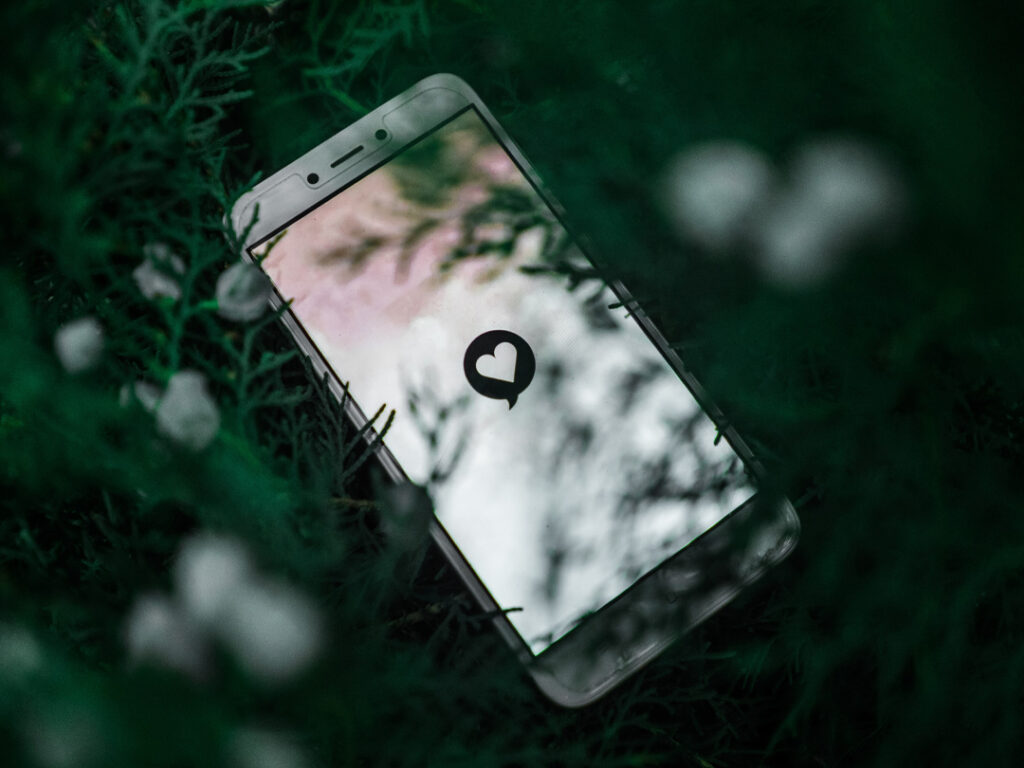One minute they’re there, the next minute they’re not. Perhaps, it’s more like this: one minute you’re there, the next minute you’re not.
In the world of dating apps, ghosting has become a social norm. Two people ‘match’ then one of them suddenly ends all contact in the hopes the other will get the hint they are no longer interested rather than directly tell them.
Ghosting can happen at any stage after matching with someone. The two you you may not even exchange a message before you’re ‘unmatched’. At the other extreme, you may have sex or start a relationship, then nothing. All you hear are crickets.
Most people on dating apps will be ghosted by at least one match at some point. You may even be the one who ghosts your matches.
But for those being ghosted, the experience can be painful, especially if it happens often or their hopes and expectations for the match are high. It is, after all, a form of rejection and crushes dreams of ‘what could have been’.
Ghosting isn’t completely negative though. It can be an opportunity to improve your communication skills and ability to bounce back when things don’t go your way.
That said, ghosting isn’t an experience most people would seek and there are ways to reduce your risk of being ghosted if you know common reasons for it.

It’s no you, it’s them
As a dater you may know who you want and how to attract them, but the occasional match can still disappear. Sometimes it’s not you, it’s them. Perhaps…
They’re busy
Your match may genuinely be into you but they’ve experienced something that delays their reply. Perhaps, they’re overwhelmed by work or family commitments, or have an emergency to deal with. In these cases, your match may connect with you when they have more time for you.
They’re afraid of getting hurt
Even if your match ultimately wants a relationship, they may be afraid of getting hurt, whether or not they realise it, so they avoid commitment. They may be unsure if you like them or be intimidated by you and worry that you will stop dating them. (The reverse may also be true – your match is no longer interested but afraid of hurting you). As a result, these matches ghost you to protect themselves from a real or imagined fear of pain or loss.
They’re going through a hard time
Dating apps are no different to other forms of social media in potentially masking someone’s reality. Your match may seem as though their life is picture perfect when they’re actually doing it tough. Problems related to family, work, finances, health or other areas of life may be making it difficult for them to invest energy in dating so they end up ghosting you.
There’s someone else
Don’t assume that all people on dating apps are single! Some are honest enough to admit that they have a partner and are looking for fun on the side, while others fake their single status. These matches may ghost you because they’ve been caught out by their current partner, or just want to explore their options without cheating (not yet, anyway).
Of course, there are plenty of legitimate singles on dating apps, and with so many potential matches just one swipe away, it’s easy to build a long list. You may be ghosted because, as far as your match is concerned, someone better has come along. Alternatively, they may keep you on the bench, providing just enough attention to keep you interested while they play the field.

Maybe, it is you
Sometimes, a match will ghost you because of what you’ve done – or not done. So, try to avoid some common traps. Maybe…
You make them wait too long
It can be hard to know how soon to make contact with someone after you match. Some daters send a message right after the match notification while wait days. Unless they state it in their profile, you may not know what your match prefers. So, go with your intuition. If you like the person, message them. You’ve got their attention by matching, so make them most of it before someone else enters the scene, otherwise you may be ghosted in favour of the newcomer.
You come on too strong
Do you talk about wanting to have sex, get married or start a family early on, perhaps in your first message? It may work for likeminded people, but not all. Some topics are sensitive and raising them too soon may scare someone off and leave you ghosted.
Avoid asking for off-app contact details, like a phone number or to meet up after only a couple of messages. It can seem desperate at best or frightening at worst. Get to know your match, make sure they are a safe choice, and let the tension build up between you before you ask them out or bring up risky topics.
You have poor spelling or grammar
We all make the occasional mistake when messaging, some of which are not entirely our fault – I’m blaming you predicted text! But exchanges that are consistently filled with poor spelling or grammar can be a turnoff for some people. Then again, messages that are too perfect can be equally off-putting for others.
Check for errors before sending a message and consider an emoji (or two or three) to help explain what you’re trying to say. Mirroring your match’s style and tone can also help to build rapport between you.
You don’t match your profile
Do you include traits or interests in your profile that you know will attract a match, even if they are not true to who you are? Do you use outdated or heavily retouched photos because you think they make you look more attractive? Sure, these tactics can get you matches, but they can get you ghosted too. Your match may pick up on fibs through text, photo and video interactions before meeting you in real life. Be honest about your personality, interests, expectations and appearance. Both you and your match should know who they are getting.

Actually, it’s both of you
It’s cliched but true: some things are just not meant to be. You may ghost your match or vice versa because, beyond the initial superficial attraction, there’s no spark between you. Is it that…
You’re not having conversations
Are you making an effort to get to know you match by sharing your own thoughts, feelings and experiences and asking about theirs? Are they doing the same? When someone offers little more than closed yes/no questions and statement responses, it can come across as disinterested and makes the other person work hard to ongoing conversation. This can be a strategic move to gauge interest and test how far the other person will go to keep the interaction going, or it can occur because you have nothing in common. Unless you are asking each other open-ended questions, and responding with thoughtful answers and more questions, ghosting can end what’s clearly going nowhere.
You’re a match but not a good one
The very fact that you matched suggests both of you liked what you saw (ignoring accidental swipes, which, let’s face it, do happen). But sometimes all it takes is one message to make you realise that you’re incompatible in terms of personality, interests, beliefs, life plans or another area that’s important to you. You may simply stop being into them. They can experience the same towards you. Sure, relationships can develop from a slow burn, but either of you feels like there isn’t enough chemistry or common ground to pursue it, ghosting may be the outcome.
Be a friendly ghost!
So we know ghosting can happen for a wide range of reasons, but is it ever okay? Absolutely.
Ghosting can be acceptable in many situations, including, if your match is making you feel unsafe, being disrespectful, abusive or manipulative, or violating your boundaries. If someone is not giving you the time, effort and respect you deserve then ghost them, especially if it is early on and there’s been little investment in the match by either party.
Then what? If you’ve ghosted someone, reflect on how far had things progressed with your match? Did you consider the potential impact on them? Should you have handled the situation in another way?
If you’ve been ghosted, do you know why? Do you care? Should you approach future matches differently?
Whether you want to ghost or have been ghosted, aim to act with kindness towards others and yourself – give your match (and yourself) the closure they (or you) may need and practice self-care.
Credits
Main photo by Pratik Gupta on Unsplash

